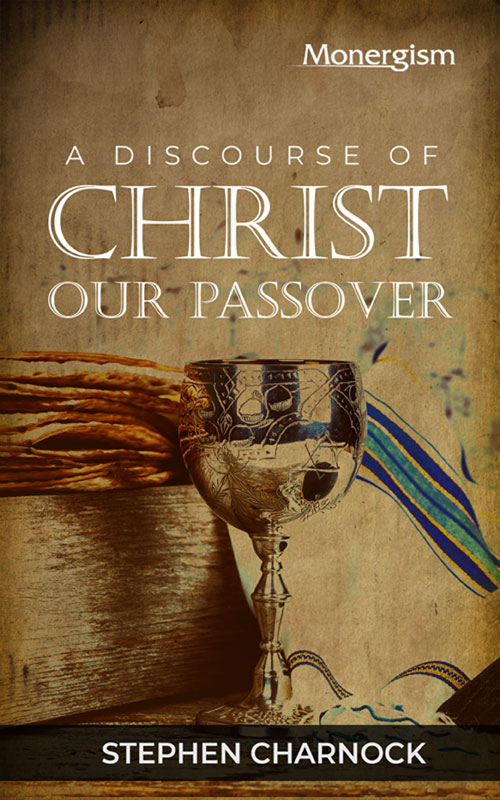 by Stephen Charnock
by Stephen Charnock
in ePub, .mobi & .pdf fomats
For Christ our passover is sacrificed for us.—1 COR. 5:7.
THE words are a reason of the apostle's exhortation to the Corinthians to cast out the incestuous person, in regard of the contagion which might be by so ill an example dispersed to others, as a leaven spreads its vapours through the whole lump: ver. 6, 'Know you not, that a little leaven leaveneth the whole lump?' And having used this similitude of leaven, he pursues it in allusion to the custom of the Jews before the celebration of the passover, according to the command to have no leaven found in their houses at that time, upon the penalty of being cut off from the congregation of Israel; and with respect to the true design of that ceremonial injunction, exhorts the Corinthians to 'purge out the old leaven,' viz., that person from their society, lust from their hearts, every member of the old Adam, that they might be a new lump, answering their holy and heavenly calling. The reason of this exhortation is in the words: 'For Christ our passover is sacrificed for us,' and by his death hath taken away the sin of the world.'* As the sacrifice of the paschal lamb represented the sacrifice of Christ, so the manner wherein the Israelites celebrated that solemnity with unleavened bread represents the manner wherewith we ought to celebrate the death of the Redeemer of the world. As therefore our true passover, which is the Lord Jesus, hath been sacrificed for us, let us daily celebrate the memory of it in a manner worthy of so great a grace. As, therefore, the Jews abstained from all leaven in the time of the figure, let us not only abstain from, but purge out, all things contrary to God, because for this end Christ was sacrificed for us. As the passover was a type of Christ, so the unleavened bread was a type of Christians, and of their innocence and purity of life.† And that 'because you are unleavened,' i.e. de jure, you ought to be so; for that is said in Scripture sometimes to be de facto which ought to be, as 'the priest's lips preserve knowledge,' i.e. ought to preserve knowledge.‡Ἐκκαθάρατε, purge out, is more emphatical and pressing than a simple purging: purge it out wholly, that nothing may be left in you, that you may be such as a new lump did figuratively signify.
Christ our passover. The institution of this solemn figure is particularly set down Exod. 12:3–5, &c. It was appointed by God as a memorial,§both of the Israelites' slavery in Egypt and their deliverance from it. After they had been about two hundred years in that country, God, mindful of his promise, sets upon their delivery; and since all the former miracles had proved unsuccessful for the bending Pharaoh's heart to give the captives liberty to depart, God designs the slaying of the first-born of every Egyptian family, and thereby sending the greatest strength of the nation to another world. Upon this occasion he orders the Israelites, by Moses, to slay the lamb the fourteenth day of the first month (which answers to our March), and sprinkle the posts of their doors with the blood, and feast upon the flesh of it in their several families; and that night the angel comes and mortally strikes every first-born, none escaping but those who observed this, command of God, and had sprinkled their door-posts with the blood of the slain lamb; every house besides being made that night a house of mourning. It was an earnest of the Israelites' deliverance, and the Egyptians' calamity.
-----
Table of Contents
Introduction
Obs. 1. God's greatest mercies to his church are attended with the greatest plagues upon their enemies.
Obs. 2. There is a resemblance in the effects or consequents of the passover.
The use.
3. Exhortation.
I shall lay down some propositions for the illustrating this doctrine.
The essence of a sacrifice consisted,
Use. If Christ be a sacrifice,
